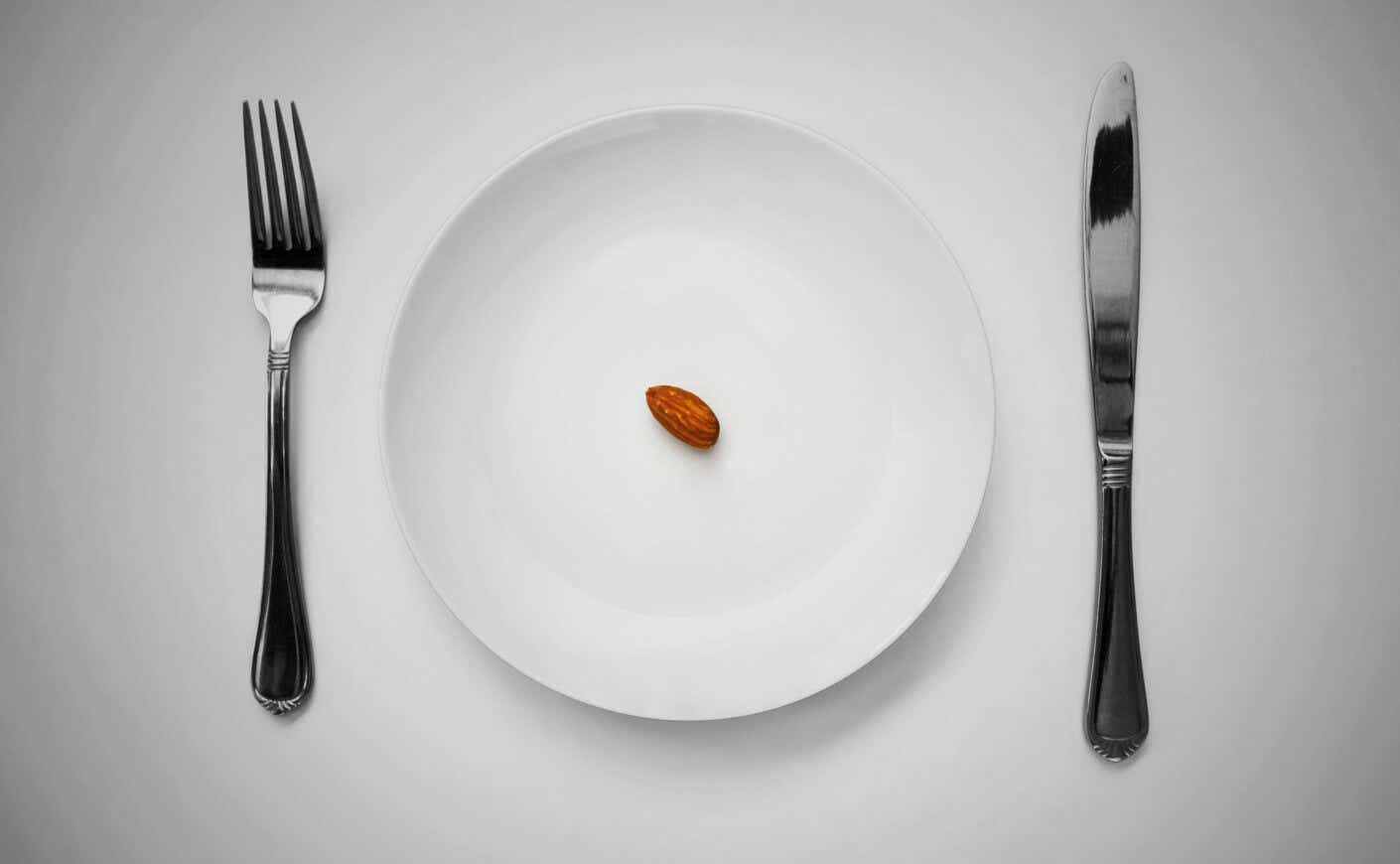If you’ve ventured into the wild world of TikTok, there’s a chance you noticed a common thread popping up recently: Young TikTok creators are making videos that either spoof or seriously criticize an archetype they’ve dubbed “the almond mom.” And while plenty of TikTok trends are absolutely ludicrous, this new terminology is — unfortunately — a very serious teaching moment.
The term “almond mom” first emerged in the fall of 2022, when 2014 footage of Real Housewives of Beverly Hills star Yolanda Hadid resurfaced. In the clip, Hadid’s daughter, Gigi, complains about “feeling really weak” after eating only “half an almond.”
Yolanda’s response? “Have a couple of almonds and chew them really well.”
What is an almond mom?
In a nutshell, an almond mom is a parent (typically a mother, though dads are not exempt) who pushes disordered eating and fitness habits onto their children, often under the guise of health and wellness. According to TikTok users, these parents are prone to body-shaming and giving unsolicited eating and exercise advice. So it makes sense that jokes and complaints about almond moms surged over the holidays, a time at which most of us want to indulge.
Keep in mind that almond moms aren’t inherently cruel or bad; these parents’ restrictive attitudes emerge from a complicated web of influences. Cara Bohon, Ph.D., — a licensed clinical psychologist, eating disorder expert, and the vice president of clinical programs at Equip — clarifies that “‘almond people’ often are the product of environments rife with toxic diet culture that can lead to disordered eating.” Dr. Bohon recommends a balanced approach to handling this type of parenting, like “acknowledging that while they may be triggering to be around, they most often don’t mean to be harmful or hurtful, and are usually coming from a place of ignorance and naivete.”
That being said, it’s easy to understand why these young TikTok creators might not always have the patience to empathize with their parents. For instance, a lot of the content revolves around parents passive-aggressively urging their children to restrict food. In one video, a woman pretending to be an almond mom at Thanksgiving says, “Maybe you want to consider putting your chips on a plate so you know how much you’re eating.” Other creators tell real stories about stricter rules: One says her mother completely forbade white carbs and chocolate in the house. Meanwhile, other creators complain about their mother’s dieting mantras. (“Nothing tastes as good as skinny feels” is a common, classic one.)
How should you address almond mom behavior?
Unfortunately, while parents may think they’re helping their children gravitate toward healthy choices, obsessing over diet and exercise can easily do more harm than good. In a critique of Hadid’s advice, dietitian Abbey Sharpe points out that “as parents, we have an enormous responsibility to not only protect our kids’ emotional and physical health but also provide good role modeling of a healthy relationship with food.” Plus, according to one study, parents’ attitudes toward body image can affect children as young as three, so these negative patterns can start very early in life.
If you’ve ever badgered your kids about portion control, vilified specific foods, or have otherwise projected body image anxiety onto your family, there’s a chance your children may relate to the almond mom discourse. But if your kids deem you an almond parent, it doesn’t mean that you’ve failed at childrearing, or that your kids are somehow doomed. Rather, you’ve passed on some facets of diet culture — maybe accidentally or even with the best of intentions. Dr. Bohon points out that since toxic eating habits are so prevalent in our culture, “the symptoms of a serious eating disorder can often be brushed under the rug and misread as ‘normal’ rather than being recognized as a serious mental health condition.” Under these conditions, it’s very easy to perpetuate disordered eating without realizing that you’re doing so.
It’s never too late to change the way you talk about food and body size, though. We’ve previously advised using neutral language to describe foods and bodies so that children won’t perceive certain food groups or body shapes as inherently “bad.” But since young people also pay close attention to how we treat ourselves, we also have different techniques on deck for reframing your perception of your own body.
Plus, if you’re overwhelmed by the prospect of reevaluating your eating and parenting habits, Dr. Bohon has some basic advice: “Food is fuel, and educating yourself on real holistic nutrition, understanding how your body reacts to certain foods, and refusing to assign moral value to food — such as subscribing to the belief that ‘carbs are bad’ — are all important steps in making healthy food decisions that work for you and set a safe example for those around you.”













